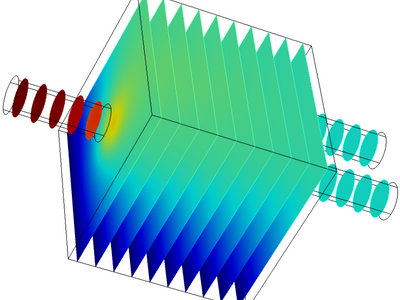The course will give you knowledge about advanced computer methods based on numerical algorithms for solving mathematical models from scientific and engineering applications, in particular about how to formulate, analyze and implement them. More specifically, the course includes:
- numerical treatment of ordinary differential equations,
- finite difference methods and basic finite element methods for, mainly linear, partial differential equations,
- numerical solution of linear systems of equations by direct and iterative methods,
- orientation about mathematical modeling.
